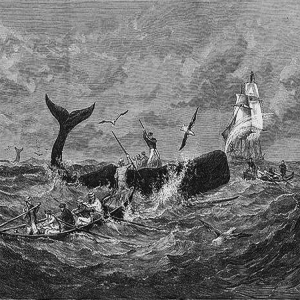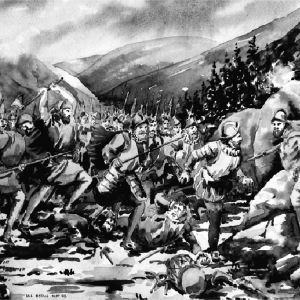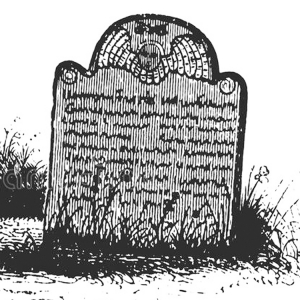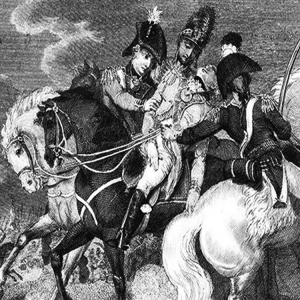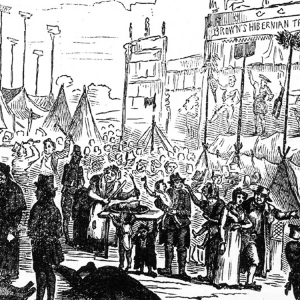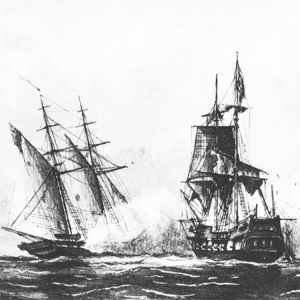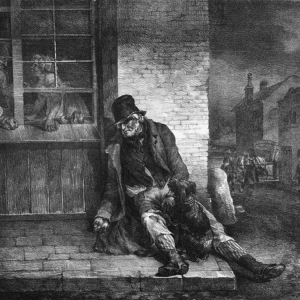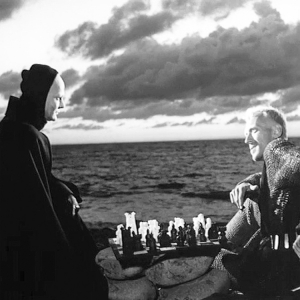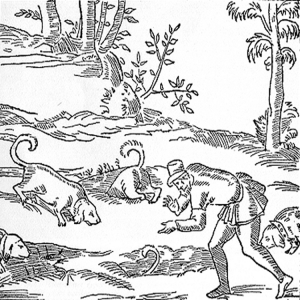The Songs
1: The Last Leviathan
Brian Gulland: Bassoon, Contra Bassoon, Bass Clarinet, Harmonium, Whale Noises
Dave Oberle: Drums, Tabla
Graeme Taylor: Electric Guitar, Synth Bass Drone
Chris Leslie: Fiddle
Dave Pegg: Bass
My heart it has been rent and I am crying
All the beauty around me fades and I am screaming
I am the last of the great whales and I am dying
Last night I heard the cry of my last companion
The roar of the harpoon gun and then I was alone
I thought of the days gone by when we were thousands
But I know that I soon must die : the last leviathan
This morning the sun did rise Crimson in the north sky
The ice was the colour of blood and the winds they did sigh
I rose for to take a breath it was my last one
From a gun came the roar of death and now I am done
Oh now that we are all gone there's no more hunting
The big fellow is no more it's no use lamenting
What race will be next in line? All for the slaughter
The elephant or the seal or your sons and daughters
And so since time began we have been hunted
Through oceans that were our home we have been haunted
From Eskimos in canoes to mighty whalers
Still you ignored our plea, none came to save us
My soul has been torn from me and I am bleeding
My heart it has been rent and I am crying
All the beauty around me fades and I am screaming
I am the last of the great whales and I am dying
2: Follow Me up to Carlow
Dave Oberle: Drums, Percussion, Vocal
Brian Gulland: Bassoon, Harmonium, Vocal
Lucy Cooper: Vocal
Graeme Taylor: Electric Guitar
Chris Leslie: Fiddle, Vocal
Dave Pegg: Bass
Brooding o'er the old disgrace
That Black Fitzwilliam stormed your place
And drove you to the fern-o
Grey said victory was sure
Soon the firebrand he'd secure
Until he met at Glenmalure
With Feagh MacHugh o'Byrne -o
Ch/ Curse & swear, Lord Kildare
Feagh will do what Feagh will dare
Now Fitzwilliam have a care
Fallen in your star low
Up with Halberd out with sword
On we go for by the Lord
Feagh MacHugh has given the word
'Follow me up to Carlow!'
See the swords of Glen Imaal
Flashing o'er the English Pale
See all the children of the Gael
Beneath O'Byrne's banners
Rooster of a fighting stock
Would you let a Saxon cock
Crow out upon an Irish rock?
Fly up & teach him manners
From Trassagart to Clonmore
There flows a stream of Saxon gore
Great is Rory Og O'Moore
At sending the loons to Hades
White is sick & Grey is fled
Now for Black Fitzwilliam's head
We'll send it over, dripping red
To Liza & her ladies
Lift, MacCahir Og, your face
Brooding o'er the old disgrace
That Black Fitzwilliam stormed the place
And drove you to the fern-o
Grey said victory was sure
Soon the fire-brand he'd secure
Until he met at Glenmalure
With Feagh MacHugh O'Byrne-o
3: Poor Murdered Woman
Dave Oberle: Drums, Percussion, Vocal
Brian Gulland: Bassoon, Cor Anglais, Harmonium
Graeme Taylor: Electric Guitar
Chris Leslie: Fiddle
Dave Pegg: Bass
Who rode out a-hunting on one Saturday.
They hunted all day, but nothing they found
But a poor murdered woman, laid on the cold ground.
About eight o'clock, boys, our dogs they throwed off,
On Leatherhead Common, and that was the spot;
They tried all the bushes, but nothing they found
But a poor murdered woman, laid on the cold ground.
They whipped their dogs off, and kept them away,
For I do think it's proper she should have fair play;
They tried all the bushes, but nothing they found
But a poor murdered woman, laid on the cold ground.
They mounted their horses, and rode off the ground,
They rode to the village, and alarmed it all round,
Tis late in the evening, I am sorry to say,
She cannot be removed until the next day.'
The next Sunday morning, about eight o'clock,
Some hundreds of people to the spot they did flock;
For to see the poor creature your hearts would have bled,
Some odious violence had come to her head.
She was took off the common, and down to some inn,
And the man that has kept it, his name is John Simms.
The coroner was sent for, the jury they joined,
And soon they concluded, and settled their mind.
Well her coffin was brought; in it she was laid,
And took to the churchyard that was called Leatherhead,
No father, no mother, nor no friend, I'm told,
Came to see that poor creature laid under the mould.
So now I'll conclude, and I’ll finish my song,
And those that have done it, they will find themselves wrong.
For the last day of Judgement the trumpet will sound,
And their souls not in heaven, I'm afraid, won't be found.
4: Banks of the Nile
Dave Oberle: Dancing Drum
Lucy Cooper: Vocal
Chris Leslie: Fiddle
No longer can I stay.
The bugle horns are sounding clear
And I must march away.
I am ordered down to Portsmouth
And it's many’s the weary mile
To join the British Army on the banks of the Nile.
Oh, Willy, dearest Willy,
Don't leave me here to moan.
Don't let me curse and rue the day
That ever I was born.
For the parting of our love would be
Like parting with my life
So stay a while my dearest love and I shall be your wife.
Oh, Nancy, dearest Nancy,
Sure that will never do.
The government has ordered
And I am bound to go.
The government has ordered
And the Queen she gives command
And I am sworn on oath my love to serve in a foreign land.
Then I'll cut off my long hair
And I'll go along with you.
I'll dress myself in uniform
And I'll see Egypt too.
I'll march beneath your banner
While fortune it do smile
And we'll comfort one another on the banks of the Nile.
But your waist it is too slender
And your fingers they are too small
In the sultry suns of Egypt
Your rosy cheeks would spoil
Where the cannons they do rattle
And the bullets they do fly
And the silver trumpets sound so low to hide the dismal cry.
Oh cursed be these cruel wars
Wherever they begin.
For they have robbed our country
Of many's the handsome man.
They've robbed us of our sweethearts
While their bodies they feed the lines
On the dry and sandy deserts which are the banks of the Nile.
5: She Moved Through the Fair
Dave Oberle: Drums, Percussion
Brian Gulland: Harmonium
Lucy Cooper: Vocal
Graeme Taylor: Electric Guitar
Chris Leslie: Fiddle
Dave Pegg: Bass
And my father won't chide you for your lack of kine."
Then she stepped away from me and this she did say -
"It will not be long, love, 'til our wedding day."
The people were saying that no two ere were wed.
But one had a sorrow that never was said.
And I smiled as she passed me with her boots and her gear
And that was the last that I saw of my dear.
She stepped away from me and she moved through the fair.
And so proudly I watched her move here and move there.
Then she made her way homeward with one star awake
As the swans in the evening moved over the lake.
Last night she came to me, my dead love came in.
So softly she came that her feet made no din.
Then gently she touched me and this she did say -
"It will not be long, love, 'til our wedding day."
6 : High Barbaree
Dave Oberle: Drums, Bodhran, Vocal
Brian Gulland: Bassoon, Harmonium, Whistle, Vocal
Lucy Cooper: Vocal
Graeme Taylor: Electric Guitar
Chris Leslie: Fiddle, Vocal
Dave Pegg: Bass
Tom Spencer: Banjo
Blow high ! Blow low ! and so sailed we.
I see a wreck to windward and a lofty ship to lee,
A-sailing down all on the coasts of High Barbaree.
O are you a pirate or a man o'war ? cried we
Blow high ! Blow low ! and so sailed we.
O no ! I'm not a pirate, but a man o'war, cried he,
A-sailing down all on the coasts of High Barbaree.
Then back up your topsails and heave your vessel to;
Blow high ! Blow low ! and so sailed we.
For we have got some letters to be carried home by you.
A-sailing down all on the coasts of High Barbaree.
We'll back up our topsails and heave our vessel to;
Blow high ! Blow low ! and so sailed we.
But only in some harbour and along the side of you.
A-sailing down all on the coasts of High Barbaree.
For broadside, for broadside, they fought all on the main;
Blow high ! Blow low ! and so sailed we.
Until at last the frigate shot the pirate's mast away.
A-sailing down all on the coasts of High Barbaree.
For quarters ! For quarters ! the saucy pirate cried.
Blow high ! Blow low ! and so sailed we.
The quarters that we showed them was to sink them in the tide.
A-sailing down all on the coasts of High Barbaree.
With cutlass, and with gun, O we fought them hours three;
Blow high ! Blow low ! and so sailed we.
The ship it was their coffin, and their grave it was the sea.
A-sailing down all on the coasts of High Barbaree.
But O ! It was a cruel sight, and grieved us full sore,
Blow high ! Blow low ! and so sailed we.
To see them all a-drowning as they tried to swim to shore.
A-sailing down all on the coasts of High Barbaree.
7 : Poor Man's Sorrow
Dave Oberle: Drums
Brian Gulland: Bassoon, Contra Bassoon, Harmonium
Graeme Taylor: Electric Guitar
Chris Leslie: Fiddle
Dave Pegg: Bass
Nothing wouldn't satisfy me but a wife.
Along long ere I was the age of twenty
Weary I was of a single life.
Kissing and clapping was my occupation,
Among the females I did roam.
Now I am married and I live at my leisure
But the poor man's labours are never done
When the first time I married my wife Janet,
Out of her company I could not stay.
Her voice it was sweeter than the lark or the linnet
Or the nightingale at the break of day.
But now she's fairly altered her meaning,
Now she's fairly altered her tune.
Nothing but scoldings comes up her throat
So the poor man's labours are never done.
In the first half year that we was married
Scarce did I get one a-half hour's sleep.
With her two heels she rubbed my shins,
Says, “Husband dear, put down your feet.”
And when I asked her what was the meaning
Her answer to me was a “Come, come, come.”
Young men's wives they must have pleasures
So the poor man's labours are never done.
In the next half year that we was married
She brought to me our loving babe.
Sat me down to rocking and cradle
And give it a gaudy when it awake
When it cried, she bitterly scolded,
To the door I was forced to run.
Without trousers, a wig or a waistcoat,
The poor man's labours are never done.
So it's I went up to the top of the hill
To view my sheep, they had all gone astray.
When I came back she was lying in her bed
At twelve o'clock on a winter's day.
When I came back both wet and weary,
Wet and weary, where could I run?
She was lying in her bed, the fire up beside her,
She said, “Young man, is the kettle on?”
And as I was a-sitting by the side of the fire,
My wife come in as black as a gun.
Slap! come her fist into my face
So the poor man's labours are never done.
So it's I'll go to my aged mother
She is a-sitting there all alone;
Says there's plenty of young women to be had
So why shouldn't I be tied to one?
Take the second one and do try her,
And if you find that she will not do,
Take the third one and then a fourth
And then you'll find your follies new.
So it's all young men that means for to marry
Be sure and wait for a good, good wife.
And never never marry my wife's sister
For she'll grieve you all your life.
Never never marry a mother's daughter,
For she'll grieve you ever more.
Oh Death come and take my wife
And then my sorrows will be o'er.
8 : The Battle
Dave Oberle: Drums, Percussion
Brian Gulland: Bassoon, Harmonium, Soprano Alto Tenor & Bass Crumhorns, Church Organ
Graeme Taylor: Electric Guitar
Chris Leslie: Fiddle
Dave Pegg: Bass
Shivered in the damp
But the shiver came not from the cold
And spread throughout the camp
The trembling horses sensed the fear
Of silent thoughtful men
Who prayed that wives and families
Might see them once again
The Bishops sent a dawn patrol
To investigate the weight
Of forces at the King's command
Ensconced behind the gate
The ground mist hid the patrol's approach
As they drew close enough to show
The sentries on the battlements
And an archer drew his bow
From the topmost tower a sentry fell
As an arrow pierced his skull
And his headlong flight into the moat
Seemed that of a gull
The patrol reported little
There was nothing much to see
But the strong and silent castle
A symbol of the free
The King's men took communion
As the first rays of the sun
Lit up the chapel's gloomy walls
The fatal day begun
From the castle green the rooks took flight
To the high trees in the east
To their carrion minds the battlefield
Set a table for a feast
A tide of black, the Bishops' men
Equality their right
Swarmed like ants across the hill
Their aim at last in sight
The King's men dressed in purest white
Were driven back by force
And the fighting grew more violent
As the battle took its course
The Bishops gave the order
'No mercy to be shown
The sacrifice will reap rewards
When the King is overthrown'
The sight of children lying dead
Made hardened soldiers weep
The outer walls began to fall
They moved towards the keep
The rooks surveyed the battlefield
Their hungry beady eyes
Reveled in the sight of death
Showing no surprise
The pressure mounted steadily
As the Bishops neared the gate
And the desperate King called to his knights
'It's your lives or the State'.
When the anxious King began to fail
As many thought he might
The Queen ran screaming round the walls
And urged the men to fight
The Bishops' men were tiring
As the afternoon grew late
And the King's men lowered the drawbridge
And poured out through the gate
They fought their way across the bridge
The men like falling leaves
Or ears of corn that fall in swathes
The vicious sickle cleaves
The tide receded up the hill
The waste of reclaimed land
Once decaying swamp became
A shore of pure white sands
A blinded priest was seen to bless
Both dying and the dead
As he stumbled through the battlefield
His cassock running red
If uniform were black or white
His eyes could never see
And death made no distinction
Whatever man he be
As darkness fell both camps withdrew
Their soldiers slain like cattle
Leaving the rooks to feast alone
The victors of the battle
At evensong both camps reviewed
Their sad depleted ranks
As survivors of the battle
Gave God their grateful thanks
9 : Gentlemen of High Renown
David Carroll: Dulcimer, Bouzouki, Mandolin, Pipes, Vocal Dave Oberle: Drums, Bodhran, Vocal Brian Gulland: Bassoon, Harmonium, Soprano Alto Tenor & Bass Crumhorns, Tenor (hunting!) Horn, Whistle, Vocal Lucy Cooper: Vocal Graeme Taylor: Electric Guitar Dave Pegg: Bass
All songs Trad arranged Carroll, Gulland, Taylor, Oberle ℗©2022 except The Last Leviathan by Andy Barnes (©1986 Friendly Overtures) and The Battle by David Cousins (Old School Songs/ Sony Publishing Ltd)
That take delight in fox and hounds in every high degree.
A story true I will tell to you concerning of a fox
In Oxford Town in Oxfordshire there lived some mighty hounds.
Bold Reynold being all in his den and standing on the ground,
Bold Reynold being all in his den and hearing of those hounds.
"I think I hear some joyful hounds, thinking for me to kill -
Before they catch me by my brush I'll climb those mighty hills."
Bold Reynold cocked up his head and up the hill he went,
Bold Reynold cocked out his brush and left a gallant scent.
"Your hounds are staunch I know them well, they drive me like the wind
I'll step so lightly on the ground I'll leave no scent behind."
We drove Bold Reynold five hours or more without a check of speed.
We drove Bold Reynold five hours or more till we came to Oxford Green
We caught Bold Reynold all by his brush never to let him go -
He's had so many of our feathered fowls down in the valley below.
Our Huntsman blows his joyful sound, "Relope my boys, fulfil.
He'll have no more of our feathered fowls nor lambs on yonder hill."
"Oh pardon, Huntsman" then he cried. "No pardon shall you have -
Take off his head likewise his brush and give him three hurrays."
